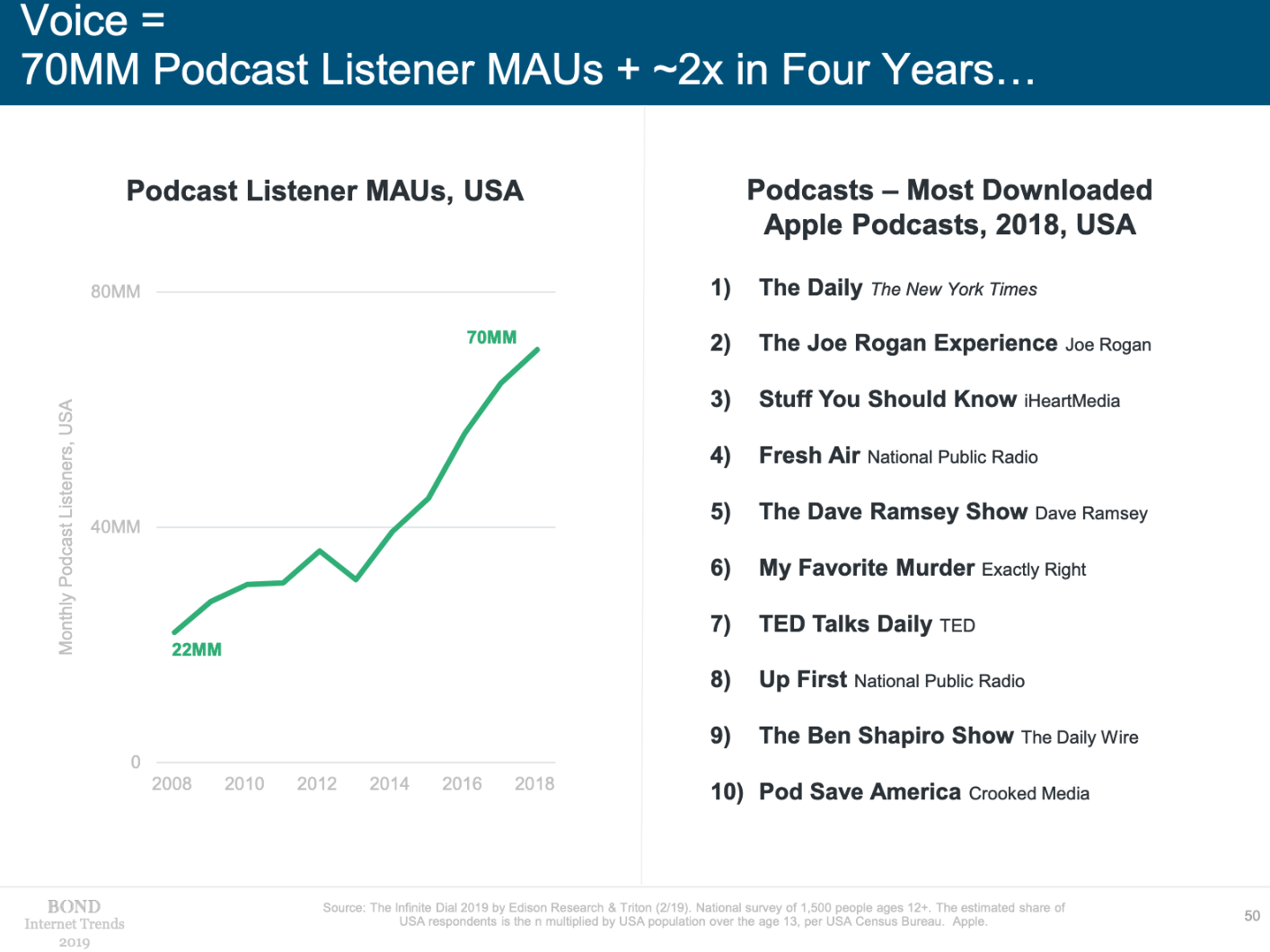When I started working on a hackathon project to publish the Splunk .conf videos from our conf.splunk.com site into a podcast form, I learned a lot that I didn’t know. This learning through hands on work has led me to contributing software code to an open source project call AntennaPod. I will write more later about what I learned about contributing code to open sourced software, bug me if you are interested.
Interesting Facts About The Podcast Ecosystem
- The entire ecosystem revolves around the iTunes store for Podcasts.
- Most podcasts apps (both iOS and Android) uses the iTunes top podcast directory and iTunes search API interface to discover and find podcasts. If your podcast is not listed on iTunes, you will not get found. So most podcast publishers will always list their podcast on iTunes first.
- iTunes has a podcastsconnect.apple.com for publishers to register their podcasts. Here is where Apple mandates the publisher to add in <itunes:explicit> <itunes:summary> and <itunes:category> tags. Which helps them with the next step in building a nicely categorized genre direcetory
- Apple has built a very useful directory of podcasts by country using 112 categories. {US, China, Germany .. etc}
- Apple provides a toppodcast API for mobile apps to build a browser interface for users to discover podcast by genre. Want to see the top travel podcasts? https://itunes.apple.com/us/rss/toppodcasts/limit=100/explicit=true/genre=1320/xml
- genre=1320 the Places and Travel category in all countries (China Places & Travel as an example by changing the url to ‘/cn/’)
- Most podcasts apps (both iOS and Android) uses the iTunes top podcast directory and iTunes search API interface to discover and find podcasts. If your podcast is not listed on iTunes, you will not get found. So most podcast publishers will always list their podcast on iTunes first.
- I worked at Yahoo News for 16 years as well as My Yahoo. Back in the 1999-2005 times, most news agencies published their full story or new snippets in the RSS format in order to be aggregated by Yahoo sites. RSS is simple and ubiquitous. Still used for syndicating all blog articles and all podcasts around the world. Learn more here on wikipedia.
- There are 892,254 podcasts around the world. 59,198,524 episodes. [ref listennotes.com]
- There are other companies out there trying to get into the market. Google gave up on podcasts but had since launched a default podcast player and a podcast store. Spodify is also recognizing this is a nascent ecosystem and has built in podcast into their app and has bought two podcast publishing brands to create premium podcasts.
- There is a podcast about the podcast ecosystem, podnews.net. Roughly 3 minute per episode and a very good website if you wanted to get into the learning more about the industry.
- The largest mobile app out there? The jury is still out , checkout this 2020 article comparing the market share as reported by Chartable, Lybsyn and MiDia [ref].
- RSS is one of the great equalizers. It’s simple enough for a one man shop [ref] [ref] to build a search engine. It doesn’t not need another aggregator, even though iTunes currently plays that role. It’s extensible enough to support future needs such as better categorization, metadata, monetization, automated ads, subscription, protected feeds.
- Why do podcast hosts always say “Please rate us on iTunes, it will help us get discover.”? It’s because there is no other central store for ratings and most importantly, it leads to discovery. Even though Android is 70% of the world of mobile phones. Google has given up on this growing marketplace and now it’s trying to come back into it.
- I very optimistic about the future of podcasting and the creators. I subscribe to 150+ podcasts and I love learning from very different perspectives from the hosts and most importantly the guests. I’ve started to contribute software code in order to continue to learn about the podcast ecosystem from the perspective of a Android mobile app.
- What I learn while contributing code [pull requests | issues]
- Chapter markers in the MP4 streams. Are a thing in Germany but because most podcast clients don’t show and honor it, most US podcasters (90%) don’t add chapter markers. See my pull request here.
- Thinking truly globally and thinking about accessibility looking at geo-location and language is important for non-US growth. Look at this bug I’m fixing in AntennaPod.
- Even though of iTunes has a global directory, for every language and country many apps don’t provide a seamless experience for non-US. This is an opportunity to create better user experience across the world. See my fix to add browsing by country and genre here to AntennaPod
As Mary Meeker writes in her 2019 State of the Internet report, page 50, Podcast Listeners will grow 2x in four years from the base of 70MM.
